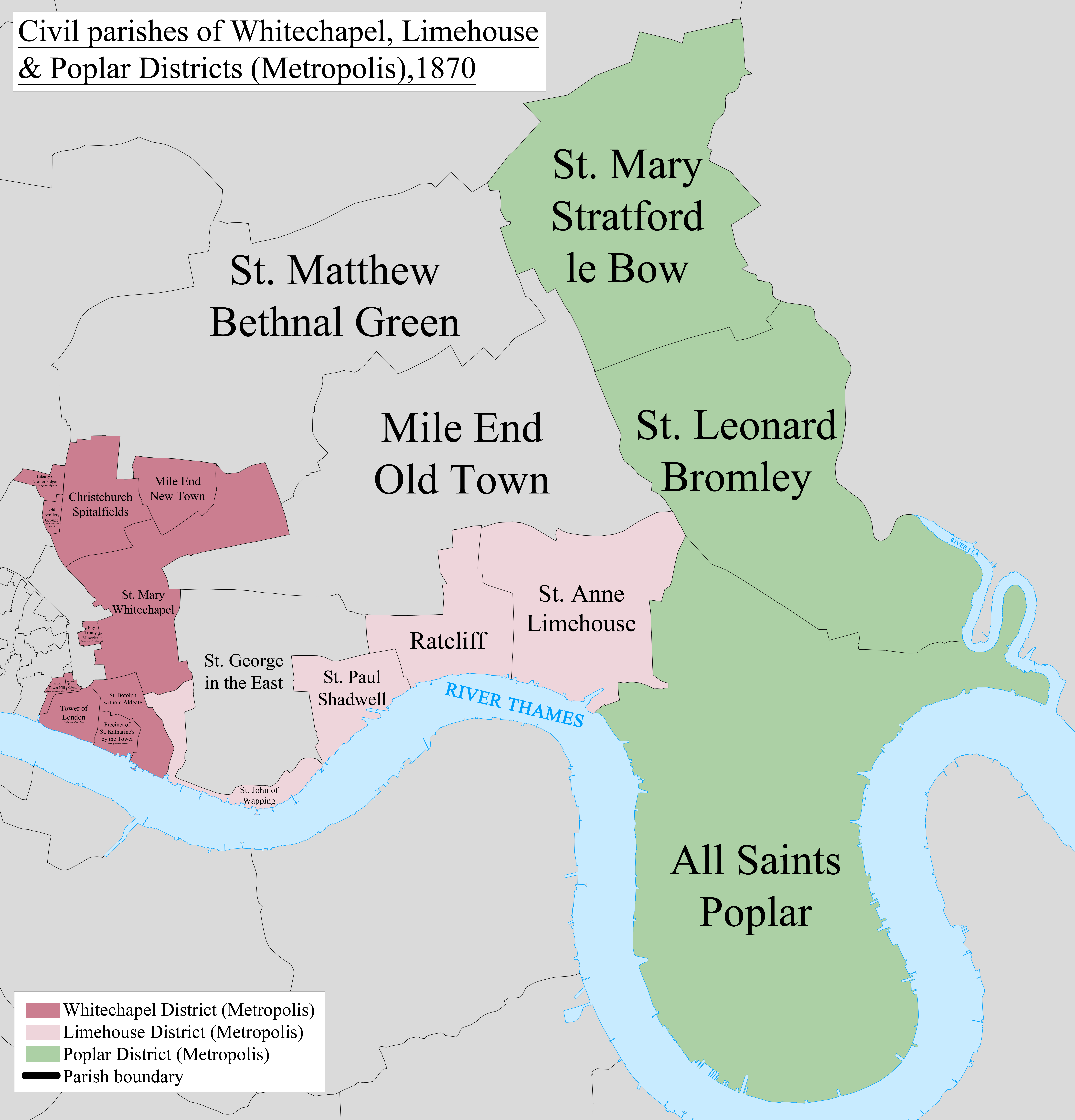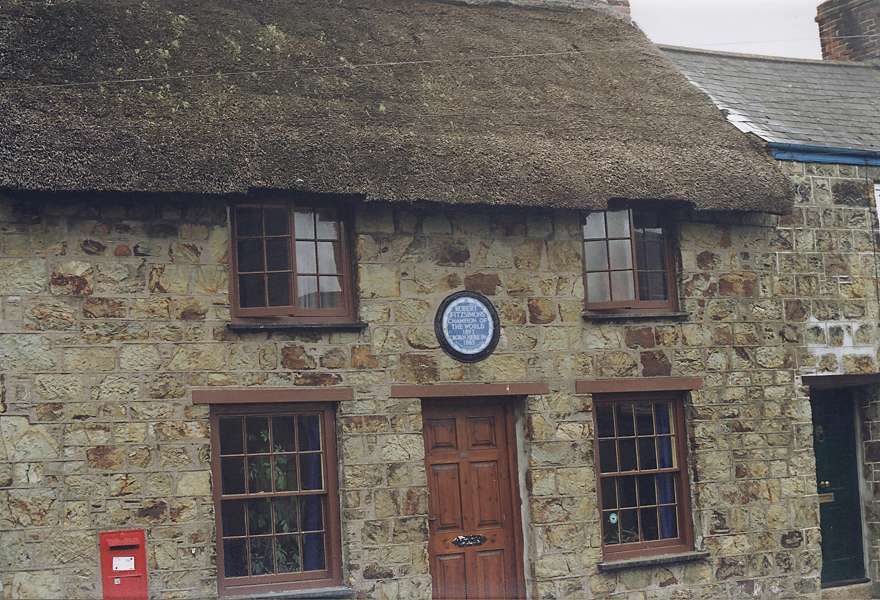|
Billy McCarthy (boxer)
''For the Irish hurler, see Billy McCarthy.'' William Patrick "Billy" McCarthy (August 8, 1854October 28, 1931) was an English-born Australian professional boxer who was also known by the nicknames "Bluey" and "Professor", who competed from 1886 to 1901 and was the Australian middleweight boxing champion in 1891, after defeating Jim Hall. Early life and interest in boxing Billy McCarthy was born on August 8, 1854, in Poplar, London and is of Irish descent. When he was old enough, he assisted his father, who was a stevedore, in his business until the age of 21. It was then when he became a seaman aboard a sailing ship, and occasionally did four-round sparring sessions at Bill Richardson's Hotel in Shoreditch, and in India he won fights under the London Prize Ring Rules against Bill Pope, Tom Jenkins and Anthony Olsen. After eight years as a seaman he went back to stevedoring, of which he soon grew tired of, and took a ship to Australia where he arrived in Williamstown, Vict ... [...More Info...] [...Related Items...] OR: [Wikipedia] [Google] [Baidu] |
Poplar, London
Poplar is a district in the London Borough of Tower Hamlets. It is located five miles (8 km) east of Charing Cross and lies on the western bank of the River Lea. Poplar is identified as a major district centre in the London Plan, with its centre being Chrisp Street Market, a significant commercial and retail centre surrounded by extensive residential development. Originally part of the Manor and Ancient Parish of Stepney, the ''Hamlet of Poplar'' had become an autonomous area of Stepney by the 17th century, and an independent parish in 1817, the Parish and later Metropolitan Borough of Poplar. After a series of mergers, Poplar became part of the London Borough of Tower Hamlets in 1965. History Origin and administrative history Poplar was formerly part of the Manor and Ancient Parish of Stepney, and was first recorded in either 1327''The History of the Countryside'', Oliver Rackham, 1986, p207 or 1350. It took its name from the Black Poplar trees which once flourished ... [...More Info...] [...Related Items...] OR: [Wikipedia] [Google] [Baidu] |
Parkes, New South Wales
Parkes is a town in the Central West (New South Wales), Central West region of New South Wales, Australia. It is the main settlement in the local government in Australia, local government area of Parkes Shire. Parkes had a population of 9,832 at the 2021 census. Estimated resident population, 30 June 2018. Parkes is part of the traditional lands of the Wiradjuri people, the largest language group in NSW with a country of more than 120,000 square kilometres. History The Wiradjuri people have lived on the lands of the 3 rivers, including the Lachlan River, for more than 40,000 years. The town of Parkes was part of the colonial expansion of the early 19th century, originally founded in 1853 as the settlement Currajong, named for the abundance of Brachychiton, kurrajong trees in the local area by the settlers, but was then known as Bushman's (from the local mine named Bushman's Lead). In August 1873, Henry Parkes (later Sir Henry) visited the area and in December 1873 the town ... [...More Info...] [...Related Items...] OR: [Wikipedia] [Google] [Baidu] |
Pittsburgh Dispatch
The ''Pittsburgh Dispatch'' was a leading newspaper in Pittsburgh, operating from 1846 to 1923. After being enlarged by publisher Daniel O'Neill (editor), Daniel O'Neill it was reportedly one of the largest and most prosperous newspapers in the United States. From 1880 to 1887 native of nearby Burrell Township, Armstrong County, Pennsylvania, Cochran's Mills, Nellie Bly worked for the ''Dispatch'' writing investigative articles on female factory workers, and later reported from Mexico as a foreign correspondent. The paper was politically independent and was particularly known for its in-depth court reporting. History The Foster years Established by Col. J. Heron Foster, the ''Dispatch'' made its first appearance on February 9, 1846. It was the first penny paper published in Western Pennsylvania, initially comprising only four pages. The paper was almost unique in the industry for being profitable almost from the very beginning despite being started during an economic recession. ... [...More Info...] [...Related Items...] OR: [Wikipedia] [Google] [Baidu] |
Purse Bid
A purse bid is an initial step in arranging a professional boxing match, involving the fight's/card's promoter(s). All interested registered promoters may bid on the amount of the purse (the total money that the fighters will be paid for the match), if the sides representing each fighter fail to agree on it before the deadline. The highest offer wins; however, the winning entity must produce a small percentage of the total amount up-front by a certain date. The purse in a purse bid is split between the fighters according to the preset formulas of the sanctioning commissions. wbcboxing.com 3 December 2011 Purse bids are often won by one of the two fighters' promoters. For championship belt fights under a given sanctioning body (WBC, WBA, WBO, IBF, etc.), the two fighters' (cham ... [...More Info...] [...Related Items...] OR: [Wikipedia] [Google] [Baidu] |
Queensbury Rules
The Marquess of Queensberry Rules, also known as Queensberry Rules, are a set of generally accepted rules governing the sport of boxing. Drafted in London in 1865 and published in 1867, they were so named because the 9th Marquess of Queensberry publicly endorsed the code, although they were actually written by a Welsh sportsman, John Graham Chambers, from Llanelli, Carmarthenshire. They were the first to mandate the use of gloves in boxing. Other new innovations included each round consisting of three minutes of fighting followed by a minute of rest, and any fighter who went down had to get up unaided within 10 seconds—if he could not he was declared knocked out. The Queensberry Rules, which eventually superseded the London Prize Ring Rules (revised in 1853), are intended for use in both professional and amateur boxing matches, unlike the less-popular American Fair Play Rules, which were strictly intended for amateur matches. In colloquial use, the term is sometimes used to ref ... [...More Info...] [...Related Items...] OR: [Wikipedia] [Google] [Baidu] |
No-decision
A no decision (sometimes written no-decision) is one of either of two sports statistics scenarios; one in baseball and softball, and the other in boxing and related combat sports. Baseball and softball A starting pitcher who leaves a game without earning either a win or a loss is said to have received a ''no decision''. Major League Baseball (MLB) rules specify that a starting pitcher, to earn a win, must pitch at least five innings, leaving the game with a lead that their team "does not relinquish". There is no innings requirement for a starting pitcher to earn a loss; it is simply that the pitcher allows a run that gives the winning team a lead they do not relinquish. When a starting pitcher does not earn a win or a loss, it is a no decision, and the outcome of the game does not affect the starting pitcher's win–loss record, as a relief pitcher will receive the win or loss. Attributing wins, losses, and no decisions can be complex, such as when a starting pitcher leaves a ga ... [...More Info...] [...Related Items...] OR: [Wikipedia] [Google] [Baidu] |
Joe Choynski
Joseph Bartlett Choynski (; November 8, 1868 – January 24, 1943) was an American boxer who fought professionally from 1888 to 1904. Boxing career "Chrysanthemum Joe", the son of a Jewish Polish immigrant who settled in California in 1867, weighed no more than 176 lb (80 kg) throughout his career but regularly fought heavyweights. He was considered a heavy puncher and a dangerous fighter. In fact, James J. Jeffries claimed that the hardest blow he ever received in a bout came from Choynski during their 20-round draw. During that bout, Choynski hit Jeffries with a right hand so powerful that the punch drove one of Jeffries' teeth into his lip. The tooth was lodged so deeply that one of Jeffries' cornermen was forced to cut it out with a knife between rounds. A contemporary of heavyweight champion "Gentleman Jim" (James J. Corbett), the two fought professionally three times. Both were from the San Francisco area, and thus generated a lot of local interest in their ri ... [...More Info...] [...Related Items...] OR: [Wikipedia] [Google] [Baidu] |
Newcastle, New South Wales
Newcastle, also commonly referred to as Greater Newcastle ( ; ), is a large Metropolitan area, metropolitan area and the second-most-populous such area of New South Wales, Australia. It includes the cities of City of Newcastle, Newcastle and City of Lake Macquarie, Lake Macquarie and it is the hub of the List of suburbs in Greater Newcastle, New South Wales, Lower Hunter region, which includes most parts of the cities of City of Newcastle, Newcastle, City of Lake Macquarie, Lake Macquarie, City of Maitland, Maitland, City of Cessnock, Cessnock, and Port Stephens Council. Newcastle is also known by its colloquial nickname, Newy. A Newcastle resident can also be known as a Wiktionary, Novocastrian. Located at the mouth of the Hunter River (New South Wales), Hunter River, it is the predominant city within the Hunter Region. Famous for its Hunter Valley Coal Chain, coal, Newcastle is the largest coal exporting harbour in the world, exporting 143 million tonnes of coal in 2022. Beyon ... [...More Info...] [...Related Items...] OR: [Wikipedia] [Google] [Baidu] |
Victoria Theatre (Newcastle)
The Victoria Theatre is a heritage-listed former theatre at 8–10 Perkins Street, Newcastle, City of Newcastle, New South Wales, Australia. It was opened in 1876 and rebuilt during 1890–1891, and is the oldest theatre still standing in New South Wales. It was added to the New South Wales State Heritage Register on 27 August 1999. The Victoria is only one of several large 'stage and screen' theatres built across the city from the 1870s until the early twentieth-century that have since been closed down. Others of importance were the early Central Mission Theatre on King Street, the Civic Theatre, and the Theatre Royal both on Hunter Street. History The first Victoria Theatre was built on the site in 1876. This was altered in 1885 and razed in 1890. The third Victoria Theatre was built in 1890 and closed as a cinema in 1966. Early performances at the theatre included Deglorian Acrobats (1880) and the Montague-Turner Opera Company (1881), the latter performing ''Lucia di Lamm ... [...More Info...] [...Related Items...] OR: [Wikipedia] [Google] [Baidu] |
Bob Fitzsimmons
Robert James Fitzsimmons (26 May 1863 – 22 October 1917) was a Cornish professional boxer who was the sport's first three-division world champion. He also achieved fame for beating "Gentleman Jim" Corbett (the man who beat John L. Sullivan), and he is in '' The Guinness Book of World Records'' as the lightest heavyweight champion, weighing just 167 pounds when he won the title. Nicknamed Ruby Robert and The Freckled Wonder, he took pride in his lack of scars and appeared in the ring wearing heavy woollen underwear to conceal the disparity between his trunk and leg-development. Considered one of the hardest punchers in boxing history, Fitzsimmons is ranked No. 8 on '' The Ring'' magazine's list of 100 greatest punchers of all time. Boxing writer and founder of ''The Ring'' magazine, Nat Fleischer, ranked Fitzsimmons the third greatest heavyweight of all time and regarded him as the greatest pound for pound knockout puncher in boxing history. Early life Robert James Fit ... [...More Info...] [...Related Items...] OR: [Wikipedia] [Google] [Baidu] |
Newspaper Decision
A newspaper decision was a type of decision in professional boxing. It was rendered by a consensus of sportswriters attending a bout after it had ended inconclusively with a " no decision", as many regions had not adopted the National Sporting Club of London's rules regarding judges and referees. A "no decision" occurred when, either under the sanctioning of state boxing law or by an arrangement between the fighters, both boxers were still standing at the end of a fight and there had been no knockout A knockout (abbreviated to KO or K.O.) is a fight-ending, winning criterion in several full-contact combat sports, such as boxing, kickboxing, Muay Thai, mixed martial arts, karate, some forms of taekwondo and other sports involving striking, ..., no official decision had been made, and neither boxer was declared the winner. The sportswriters covering the fight, after reaching a consensus, would declare a winner – or render the bout a draw – and print the newspaper decision i ... [...More Info...] [...Related Items...] OR: [Wikipedia] [Google] [Baidu] |
Knockout
A knockout (abbreviated to KO or K.O.) is a fight-ending, winning criterion in several full-contact combat sports, such as boxing, kickboxing, Muay Thai, mixed martial arts, karate, some forms of taekwondo and other sports involving striking, as well as fighting-based video games. A full knockout is considered any legal strike or combination thereof that renders an opponent unable to continue fighting. The term is often associated with a sudden traumatic loss of consciousness caused by a physical blow. Single powerful blows to the head (particularly the jawline and temple) can produce a cerebral concussion or a carotid sinus reflex with syncope and cause a sudden, dramatic KO. Body blows, particularly the liver punch, can cause progressive, debilitating pain that can also result in a KO. In boxing and kickboxing, a knockout is usually awarded when one participant falls to the canvas and is unable to rise to their feet within a specified period of time, typically because ... [...More Info...] [...Related Items...] OR: [Wikipedia] [Google] [Baidu] |






